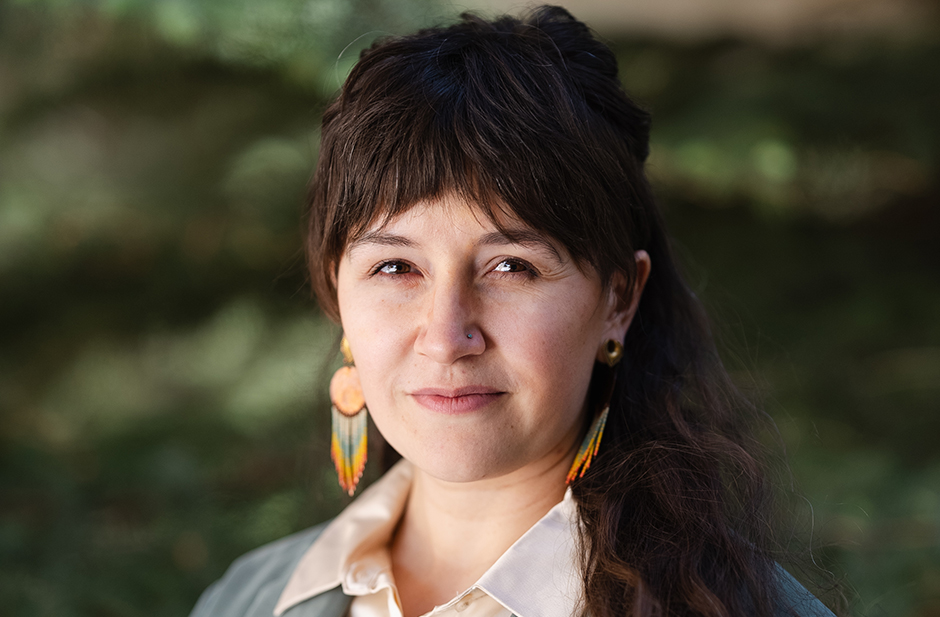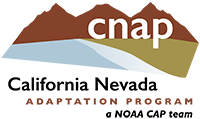WHAT WE DO
CALIFORNIA NEVADA ADAPTATION PROGRAM
Our mission is to improve resilience in California and Nevada by providing decision makers usable information through integrating cutting-edge physical and social science.
CNAP, California Nevada Applications Program, has a long history of providing cutting-edge climate science to stakeholders in the region. The program began with an emphasis on California issues in 1999 as the California Applications Program (CAP). In 2011 the team expanded its geographic scope to include Nevada and became CNAP.
CNAP’s core priority sectors include understanding effects of climate variation on water resources, natural resources and coastal resources (Figure 1), along other linked systems including societal components.
Since 2005, CNAP has worked closely with the California Energy Commission (CEC) and other State Agencies in taking a leading role in the first three California Climate Change Vulnerability and Adaptation Assessments, and is currently completing the Fourth California Climate Change Assessment. CNAP has also collaborated with California Department of Water Resources (DWR) in providing data, observations and interpretation to better anticipate how climate and associated weather events affect water resources and water hazards in the State.
CNAP, working with California agencies including DWR, CEC and the California Ocean Protection Council, has contributed to a better understanding of extreme weather impacts on the California coast, including the occurrence of coastal storms and two iterations of Sea Level Rise Guidance to State Agencies. Another focus of CNAP is working with fire agencies in California, Nevada and across the western U.S. to investigate effects of extreme weather on wildfire, with important contributions in understanding the strong influence of weather fluctuations upon the regionally varying wildfire patterns, differences in climatic influences across different types of landscape and vegetation, and changes over recent decades towards a more active wildfire regime, with projections of possible enhanced wildfire threat in future decades.
Additionally, CNAP has put new focus on the institutional knowledge in the wildfire community, working with fire fighters to better understand how extreme weather information has and could play into planning and decision making. With increased emphasis on Nevada climate issues, CNAP has worked with Great Basin tribes to understand barriers to climate data and helped develop a resilience plan with Washoe County. More recently CNAP is working with Southern Nevada Water Authority to better understand how extreme weather variation drives changes in water demand in their Clark County service territory. CNAP is also working with the Bureau of Land Management (BLM), and local National Weather Service offices on climate related projects, and CNAP researchers recently teamed with the Science Climate Alliance – South Coast to develop a comprehensive study of the vulnerability of San Diego County ecosystems to extreme weather influences.
Since the inception of the California Nevada Drought Early Warning System (CA/NV DEWS) CNAP has partnered closely with the National Integrated Drought Information System (NIDIS) to coordinate communication and to research topics surrounding drought and water resources.
CORE TENETS
CNAP proposes five tenets to support these overarching goals.
These core tenets underpin the key activities, outputs, and outcomes envisioned in this proposal for the next five years.
KNOWLEDGE-TO-ACTION PARTNERSHIP
MENTAL &
PHYSICAL HEALTH
WEATHER
PREPAREDNESS
REGIONAL
RESILIENCY




KNOWLEDGE-TO-ACTION PARTNERSHIP
We will convene and connect our researchers, community partners, and collaborators across CNAP to find equitable adaption pathways and solutions for our present and future climate risks.
GOAL: Utilize traditional engagement strategies and advance new strategies and tools to create knowledge-to-action partnerships.
MENTAL & PHYSICAL HEALTH
We will evolve our understanding of climate risk on physical and mental health
GOAL: Advance integrated scientific research at the intersection of compounding natural hazards and social stressors.
WEATHER
PREPAREDNESS
We will build capacity in our communities to use weather information and research to develop risk mitigation strategies to compounding natural hazards and social stressors that incorporate local and indigenous knowledge.
GOAL: Coproduce engagement strategies with our partners designed to reduce impacts from extreme weather events.
REGIONAL
RESILIENCY
We will use our research process and engagement strategies to directly support actions and plans that respond to regional and local natural hazard impacts and are regionally relevant.
GOAL: Develop decision support research that can be used to promote regional resiliency to extreme weather events.
OUR TEAM
Our proposed next iteration of the CNAP team expands the membership to better address the major climate risks and related adaptation challenges in the region. The revised team includes new research members from the University of Nevada, Las Vegas; the University of Nevada, Reno; the University of California Merced; Anderson Smith Consulting; and Kern Community College District. This expanded team provides expertise in public policy, social work, epidemiology, environmental health, curriculum development, program evaluation, and communications. Each of the six core projects will have a designated lead that will coordinate across the project activities and the core staff and lead/co-PIs will coordinate and ensure collaboration across the team and provide science translation, logistical, and engagement support.
EVALUATING NATURE-BASED SOLUTIONS FOR COASTAL ADAPTATION IN SOUTHERN CALIFORNIA
Laura Engeman, SIO Lead
Julie Kalansky, SIO Co-PI
Dan Cayan, SIO Co-PI
Alexander Gershunov, SIO
Tom Corringham, SIO
Amber Pairis, DRI
SOUTHERN NEVADA HEAT RESILIENCE LAB (SNHRL)
Ariel Choinard Lead
Derek Kauneckis, DRI
Emma Bloomfield, UNLV
Tom Albright, UNR
David Almanza, DRI
BUILDING CAPACITY THROUGH RECIPROCITY WITH TRIBAL COMMUNITIES
Tenaya Wood-Luna, DRI Lead
Amber Pairis, DRI
BUILDING WATER RESILIENCY THROUGH CLIMATE INFORMATION AND WORKFORCE DEVELOPMENT IN THE
SAN JOAQUIN VALLEY
Tom Corringham, SIO Lead
Julie Kalansky, SIO Co-PI
Dan Cayan, SIO Co-PI
Dan McEvoy, DRI
Josue Medellin-Azuara, UC Merced
John Abatzoglou, UC Merced
Jalisca Thomason, KCCD
James Selgrath, KCCD
Jorge Valero, UC Merced
CORE PROGRAM LEADERSHIP & STAFF
Tamara Wall, DRI PI
Julie Kalansky, SIO Co-PI
Lori Fulton, Graphic Support
Ariel Choinard, Project Coordinator
ADAPTIVE MIND
Susi Moser,
Susanne Moser
Research & Consulting
SUPPORTING HOUSEHOLD HEALTH ADAPTATION TO THE COMPOUND EVENTS OF EXTREME HEAT AND WILDFIRE SMOKE
Kristin VanderMolen, DRI Lead
Tamara Wall, DRI PI
John Abatzoglou, UC Merced
Tim Brown, DRI
Yeongkwon Son, DRI
ASSESSMENTS
Tamara Wall, DRI PI
Julie Kalansky, SIO Co-PI
Dan Cayan, SIO Co-PI
Dan McEvoy, DRI
John Abatzoglou, UC Merced
EVALUATION
Tina Smith,
Anderson Smith
Consulting
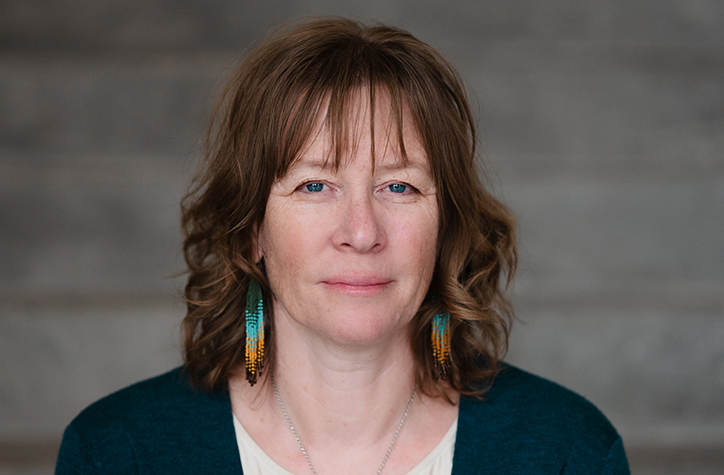
Tamara Wall - PI Lead
Dr. Tamara Wall is a research professor at the Desert Research Institute in Reno, NV and co-leads the Climate Center Group at DRI. Additionally, Dr. Wall is the deputy director of the Western Regional Climate Center. Dr. Wall has worked extensively with stakeholders in California, Nevada and other regions of the West in co-produced climate science projects for the last nine years. Her research focuses on qualitative and quantitative social science research in climate information use by stakeholders, evaluating co-produced climate science, understanding the process of climate information dissemination and utilization for climate resiliency and adaptation in natural resource management agencies, and public and agency use of fire weather forecasts and fire behavior/fire danger information. Recent work has focused on developing expertise in applying change theory and frameworks to better support mixed research/practitioner teams address the evolving dynamics between research, social processes, and climate change adaptation actions.
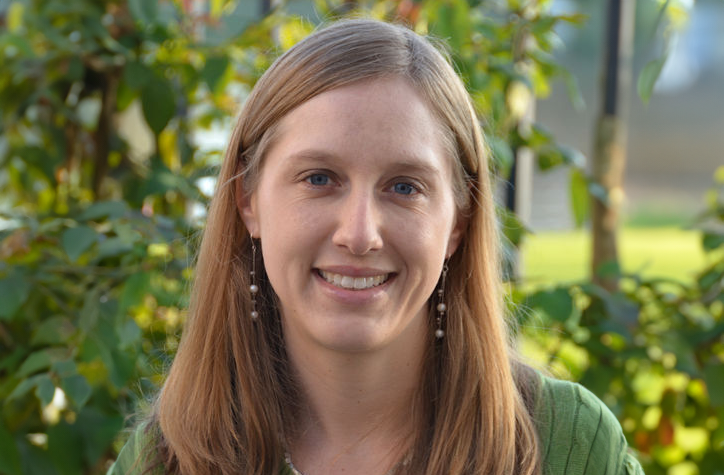
Julie Kalansky - Co-PI
Julie Kalansky is a climate scientist at Scripps Institution of Oceanography. She holds a PhD from Rutgers University in Oceanography and works on regional climate impacts, with a focus on California. She works closely with partners at federal state and local levels to help build resilience to future climate particularly as it relates to water resources. She is currently a CO-PI on the CNAP award.
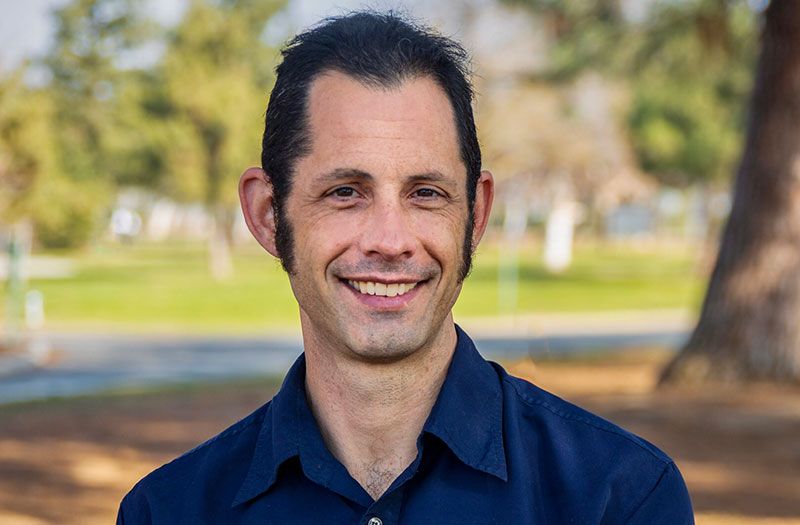
John Abatzoglou
John Abatzoglou is a climatologist and faculty at the University of California, Merced. John’s research is focused on climate science and impacts in the American West. As part of CNAP John will focus on agricultural and water climate adaptation efforts for communities in the San Joaquin Valley as well as on improving climate fluency of community college students in central California.
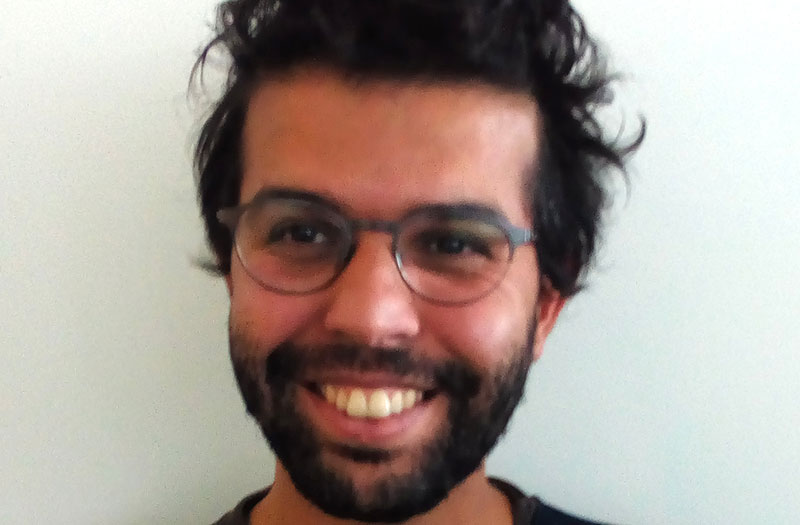
Tarik Benmarhnia
Tarik Benmarhnia is an Associate Professor of Environmental Epidemiology at UCSD, Scripps Institution of Oceanography. With his team, they use epidemiologic and causal inference methods to investigate how the environment and extreme weather events impact population health and environmental justice. As part of CNAP, Tarik Benmarhnia will focus on quantifying the health impacts associated with extreme heat and wildfire smoke and contribute to Southern Nevada Heat Resilience Lab (SNHRL).
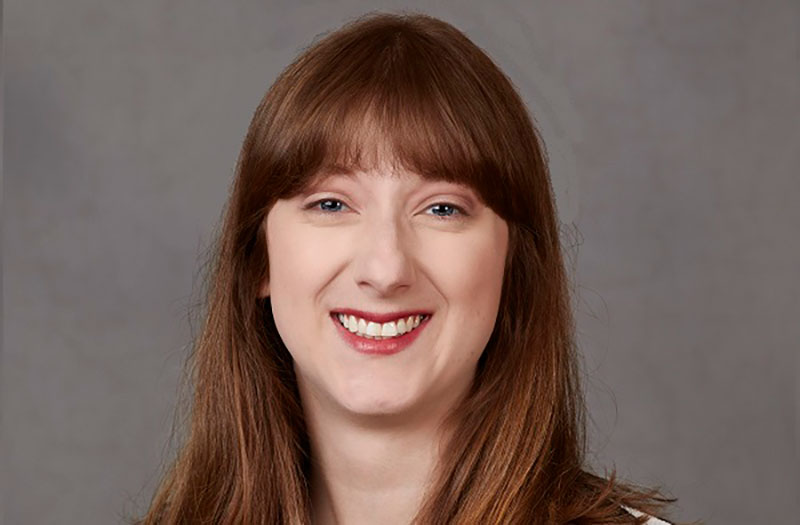
Emma Bloomfield
Emma Frances Bloomfield is an environmental communication researcher at the University of Nevada, Las Vegas who studies technical and public discourse about climate change. Her first book, Communication Strategies for Engaging Climate Skeptics: Religion and the Environment (Routledge, 2019), examined the intersection of Christianity and climate change in the United States. As part of CNAP, Bloomfield will assist in designing the Heat Lab’s messaging and work on the Adaptive Mind project.

Tim Brown
Dr. Timothy Brown conducts applied research and applications development at the Desert Research Institute (DRI) in Reno, Nevada. His primary academic interests include wildland fire-climate and fire-weather connections; the wildland fire environment; applications development for wildland fire management planning, decision-making and policy; the interface between science and decision-making; and user engagement through the deliberate co-production of knowledge. He is Director of the Western Regional Climate Center, and established and directs the Program for Climate, Ecosystem and Fire Applications (CEFA) at DRI. He is graduate faculty in the Atmospheric Sciences Program at the University of Nevada, Reno, and quandom Monash University Adjunct in the School of Earth, Atmosphere and Environment, Science Faculty in Clayton, Victoria, Australia.

Dan Cayan
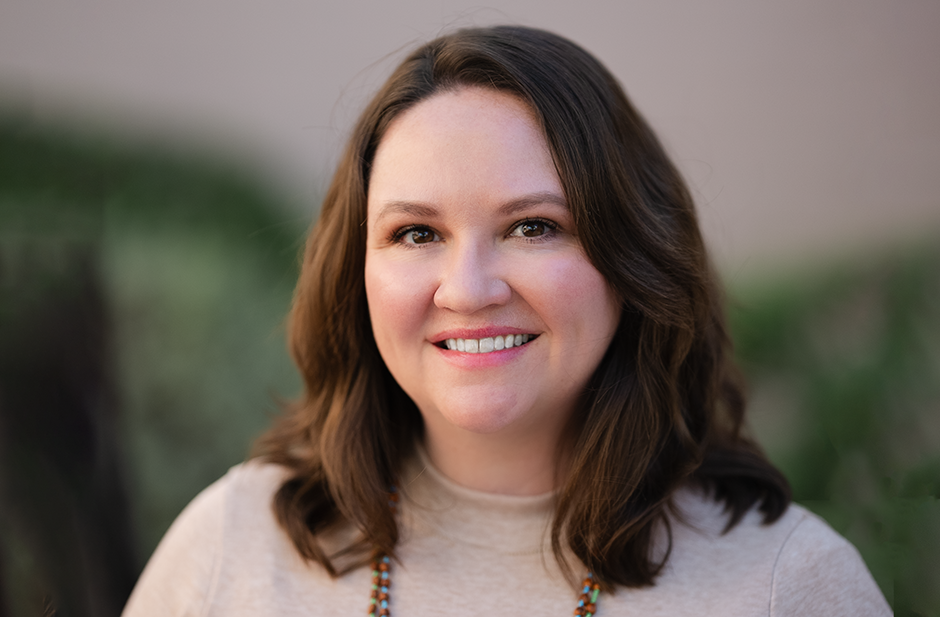
Ariel Choinard
Ariel Choinard is the Lead for the Southern Nevada Heat Resilience Lab and the Project Coordinator for the California Nevada Adaptations Program. She has a Master’s Degree in Urban Sustainability from AULA. She focuses on heat impacts, community engagement and heat adaptation.
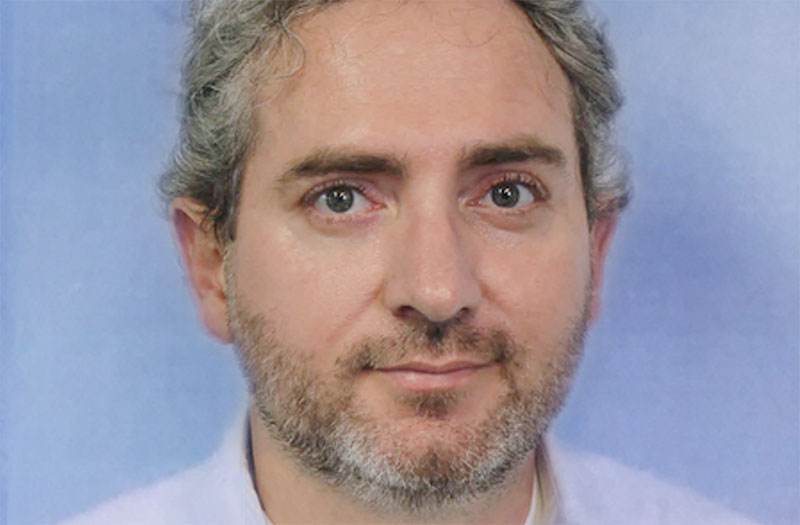
Tom Corringham
Tom Corringham is a research economist at Scripps Institution of Oceanography. His research is focused on understanding the economic impacts of climate change and extreme weather events. At CNAP he studies catastrophic floods, wildfires, water resources, agriculture, public health, and economics. A current project examines agricultural, water, and climate adaptation efforts in the San Joaquin Valley and seeks to improve the understanding and use of climate projections and information in community college courses in the Central Valley.
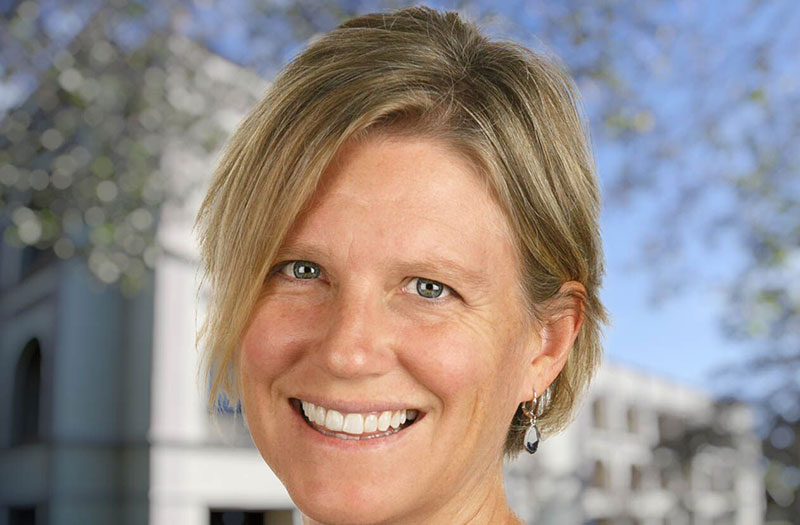
Laura Engeman
Laura Engeman is a coastal resilience researcher at Scripps Institution of Oceanography, UC San Diego. Her research focuses on applying coastal trends and projections to guide local and state sea-level rise policies, adaptation planning and coastal resilience investments. As part of CNAP, Laura will focus on identifying physical and economic information that can support adaptation pathway planning, integrating tribal stewardship into nature-based solutions, and evaluating the adaptive limitations of nature-based approaches.
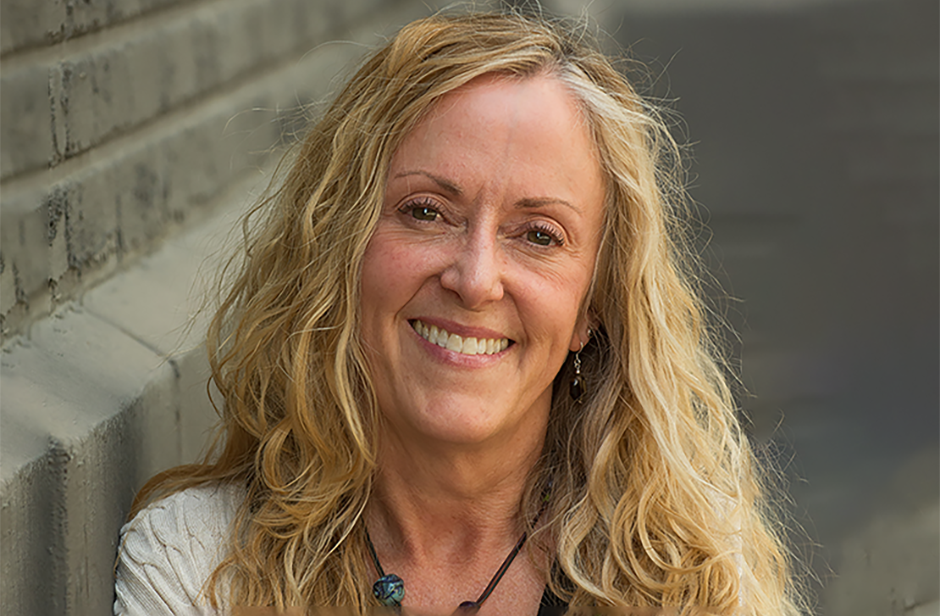
Lori Fulton
Lori Fulton is a visual science translator focused on developing visual media, such as infographics, diagrams, story boards and other messaging media, as well as reports for the California Nevada Adaptation Program (CNAP). Lori has 35+ years working in the graphic design industry and 13+ years designing scientific materials. As part of CNAP, she will focus on developing visual media materials, communicating science and research results to non-scientific communities.
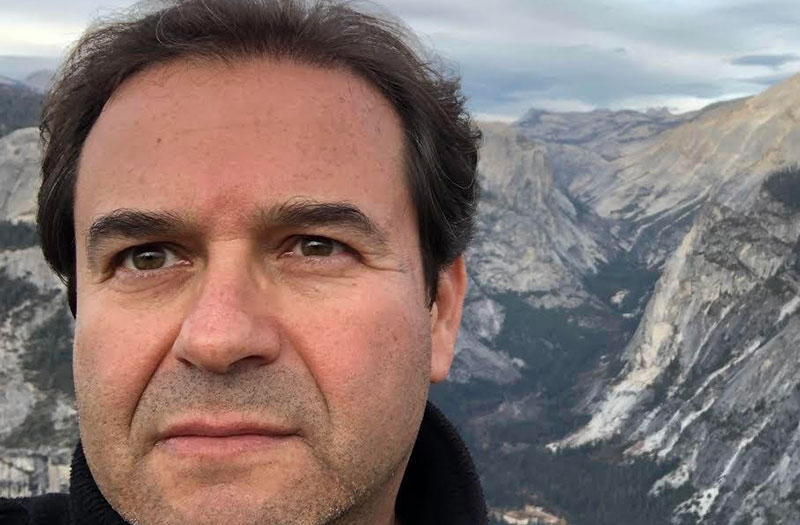
Alexander Gershunov
Alexander (Sasha) Gershunov is a meteorologist and climatologist at Scripps. Sasha’s research focuses on interrelated aspects of weather, climate and society. His professional interests include understanding the links between regional weather extremes and large-scale climate variability and change. Sasha will contribute work on coastal flooding events, as well as expertise across other projects as needed.
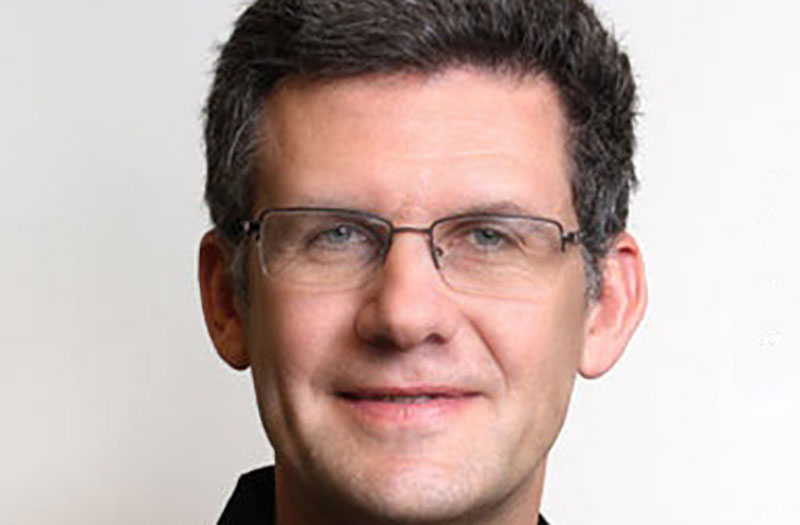
Derek Kauneckis
Derek Kauneckis is a policy analyst at the Desert Research Institute with research focused on resilience, adaptation planning, and innovation ecosystems. His work examines how information is used in local policy processes, the interface with emerging technologies, and incorporating decision sciences into policy design. As a member of the CNAP team, Derek will work on connecting research to implementation activities, building collaborative partnerships, and developing the Southern Nevada Urban Heat Lab.
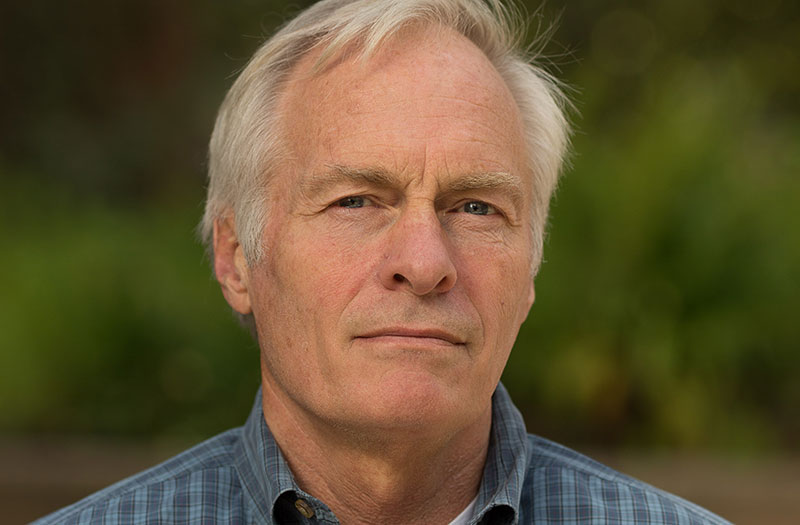
Dennis Lettenmaier
Dennis Lettenmaier is a hydrologist at UCLA with interests in hydrologic modeling and prediction and the assessment of hydrologic implications of climate change. As part of CNAP project, he will continue an ongoing investigation of the role of climate change on crop water consumption in the Central Valley, along with coincident effects of changing crop types.
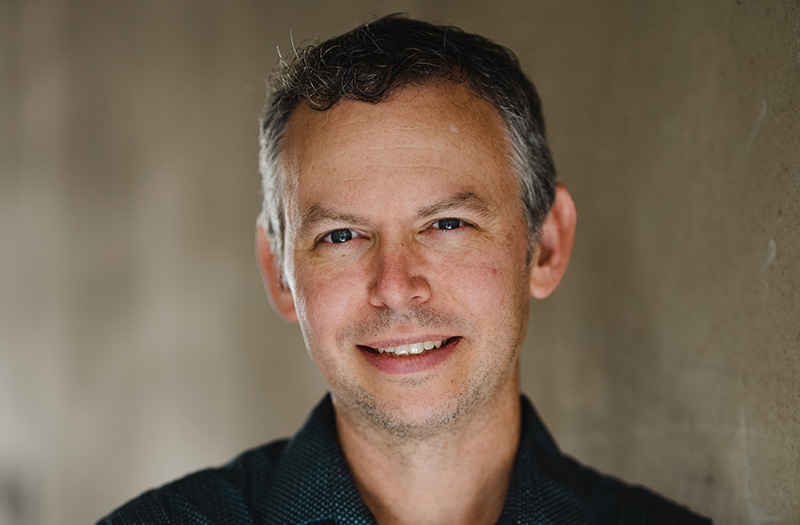
Dan McEvoy
Dan McEvoy is the Regional Climatologist for the Western Regional Climate Center and is a faculty member with the Desert Research Institute’s Division of Atmospheric Science. He holds a PhD in atmospheric science from the University of Nevada, Reno. Dr. McEvoy primarily works on hydroclimatolgy research and data applications in the western US with a focus on drought monitoring, climate-wildfire connections, and subseasonal-to-seasonal prediction.
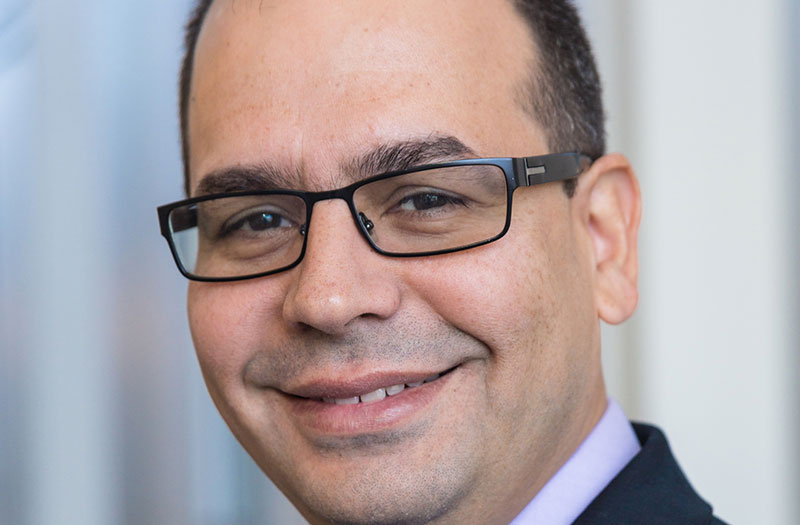
Josué Medellín-Azuara
Josué Medellín-Azuara is an Associate Professor of Environmental Engineering at the University of California, Merced. He is also an Associate Director of the UC Agricultural Issues Center, and an Adjunct Research Fellow at the Public Policy Institute of California. His areas of expertise include the development of large-scale hydro-economic models for water supply, the economics of agricultural, environmental and urban water uses, adaptation to climate change, integrated water management, and consumptive water use. As part of CNAP Josué will focus on agricultural, climate, and groundwater relations in the San Joaquin Valley.
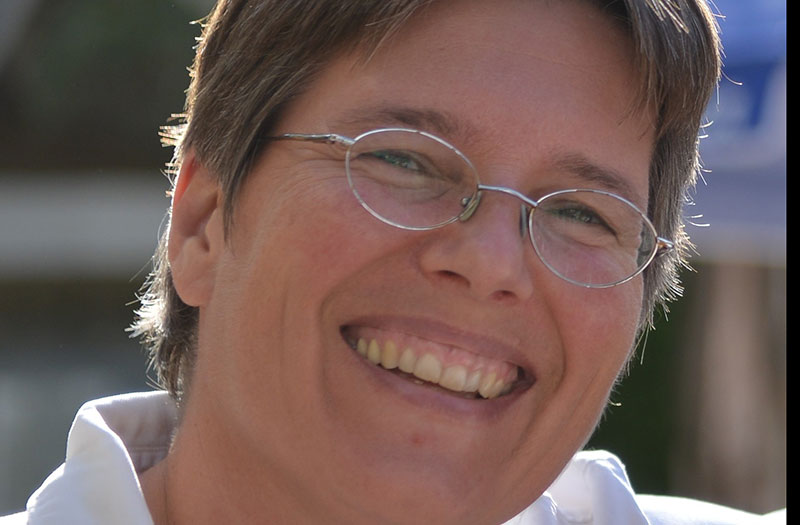
Susi Moser
Susi Moser is an independent scholar and consultant whose work focuses on adaptation to climate change, science-policy interactions, climate change communication, and psycho-social resilience in the face of the traumatic and transformative challenges associated with climate change. As part of the CNAP project she is leading the work on the Adaptive Mind, which will deliver trainings for California and Nevada-based climate professionals – broadly writ – to build their skills and capacities to navigate the constant, often traumatic, and increasingly transformative changes that come with the climate crisis.
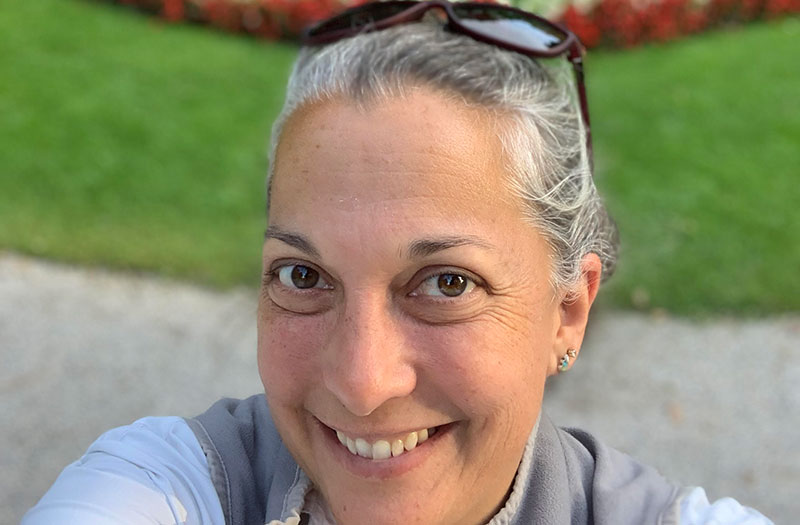
Amber Pairis
Dr. Pairis, based at the Desert Research Institute, will lead the creation of the CNAP small grants program. She will work directly with the Climate Science Alliance to develop and deliver the program to partners through the CA-NV region. Specifically, Dr. Pairis will work with the Climate Science Alliance team to design and deliver training and mentoring for both western researchers and Indigenous partners to help facilitate a space to advance co-production built on mutual trust, respect, and reciprocity.
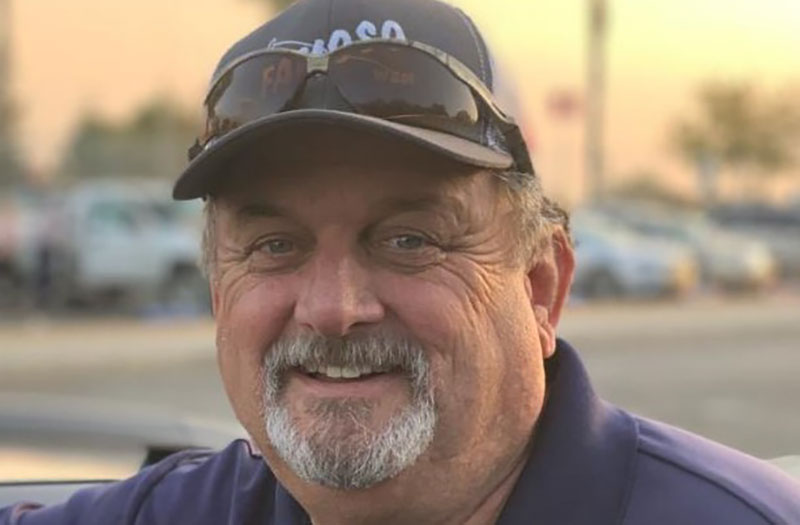
Jim Selgrath
Jim Selgrath is a scientist previously involved in large animal reproductive manipulation and genetic engineering. He has since become the owner/manager of his family’s cattle ranch and teaches agriculture business and animal science at Bakersfield College. His role in the CNAP community will be to develop course materials for entering college students that interprets and explains data collected for dissemination.
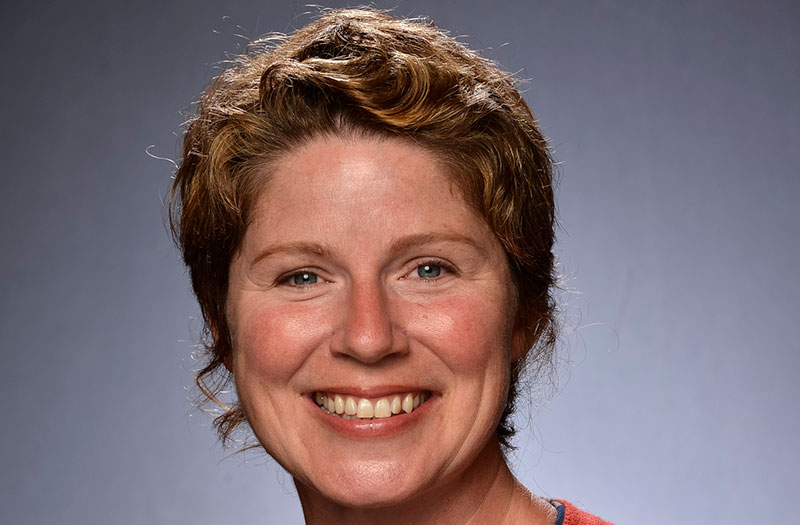
Tina Smith
Tina Anderson Smith evaluates, designs, and facilitates efforts to change complex systems at community, organizational, state and national levels. She is an independent consultant who specializes in “realist” and developmental evaluation approaches, as well as systems thinking and adaptive learning. As part of CNAP, Tina will focus on continuous learning through evaluation and will support others in using emerging insights to make strategic decisions and maximize impact.

Yeongkwon Son
Yeongkwon Son is an environmental health scientist at the Desert Research Institute. His research here focuses on assessment of personal exposure to environmental pollutants and their potential adverse health impact. As part of CNAP, Son will assess compound heat and wildfire smoke risks under different ventilation methods in Northern Nevada and California to provide multidisciplinary mitigation approaches.

Jalisca Thompson
Jalisca is a qualitative researcher interested in the post-secondary educational experience at Bakersfield College. Jalisca is well known for her work in teacher resilience and the efficacy of adult educational programming. In regards to natural resources and agriculture, Jalisca founded and manages the Regenerative Agriculture Learning Farm, which bridges the gap between traditional industry and economically sustainable regenerative practices in agricultural production. As part of CNAP, Jalisca will focus on dissemination of data and results to institutions and industry partners in a relevant and applicable format.

Kristin VanderMolen
Kristin VanderMolen is an environmental anthropologist at the Desert Research Institute. Her research is focused on climate impacts and adaptation, hazard risk communication, and information and health equity. As part of CNAP, Kristin will collaborate on an interdisciplinary project that aims to help mitigate negative health outcomes in Northern Nevada and California households exposed to the compound events of heat and wildfire smoke.
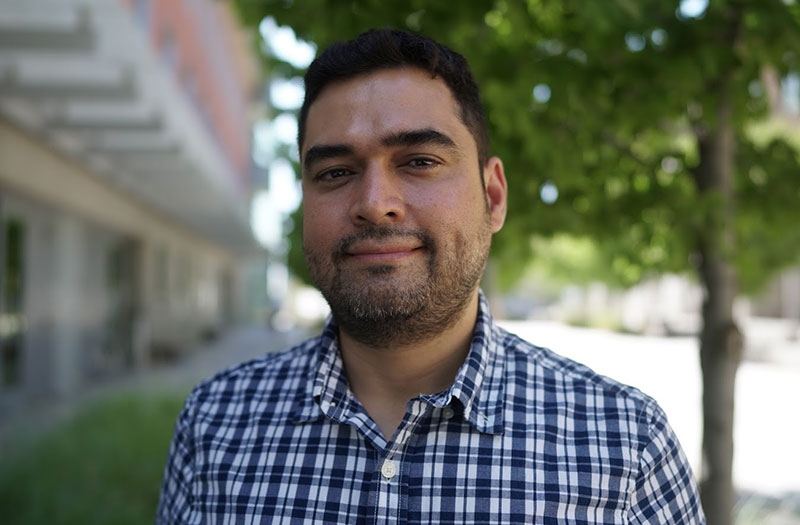
Jorge Valero-Fandino
Jorge Valero-Fandino is a PhD student at the University of California, Merced. His areas of expertise include hydraulics, surface and groundwater hydrology, simulation of aqueducts and sewer systems, watershed management, GIS, and geostatistics. As part of CNAP Jorge will focus on agricultural, climate, and groundwater relations in the Kern region.
